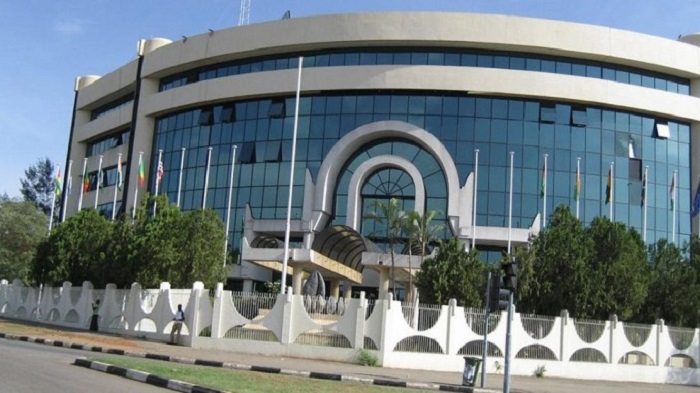Member nations of the Economic Community of West African States (ECOWAS) have called for urgent political support to eliminate barriers along key regional corridors, aiming to enhance intra-regional trade and facilitate the free movement of ECOWAS citizens.
The member states also emphasised the importance of adhering to existing Community Texts, which are aligned with international best practices and agreements, to strengthen regional integration and economic cooperation.
The call was made at a technical workshop aimed at considering recommendations for enhanced facilitation of trade and transport under the Abidjan-Lagos Corridor Highway project. This was contained in a statement by the ECOWAS Office.
ECOWAS hosts a workshop for the validation of an integrated trade and transport facilitation framework for the Abidjan – Lagos Corridor Highway Development Project…https://t.co/atswJINUyr pic.twitter.com/mv2oCJ6dHM
— Ecowas – Cedeao (@ecowas_cedeao) February 3, 2025
According to the statement, the move is in commemoration of ECOWAS’ 50th anniversary in 2025 as an enviable economic community with a full-fledged freedom of movement of persons and a functioning regional free trade area.
The statement also noted that one of the major components of the preparatory phase of the Abidjan-Lagos Corridor Highway Development Project is the preparation and implementation of a comprehensive trade and transport facilitation strategy to provide seamless movement of goods, persons and vehicles along the corridor.
Read Also: EU, ECOWAS Highlight Initiatives to Boost Trade
“The envisioned framework will cover all measures aligned with regional, continental and international trade facilitation agreements, eliminate border control delays and harassments, as well as other non-tariff barriers and multiple control checks on sections.
“The framework will also seek to ensure the full operationalization of regional facilitation measures such as the new Transit Procedure (which replaces the
erstwhile Interstate Road Transit Scheme), improve regulation of cross-border transportation, standardise and customs procedures and fully interconnect systems, and digitalise the application of the ECOWAS Brown Card for cover cross-border vehicles as well as all other related interventions.”
Read Also: ECOWAS Affirms Open Transactions with Withdrawing Member States
Speaking, the Director of Transport at the ECOWAS Commission, Mr Chris Appiah, indicated that once completed, the Corridor Trade and Transport Facilitation Framework will contain a comprehensive set of measures to be implemented together before and after the construction of the 6-lane dual carriage supranational highway from Abidjan to Lagos.
He said, This is expected to contribute significantly to enhancing intra-regional trade and free movement of community citizens, vehicles and related services under the ECOWAS regional integration agenda while positioning Member States properly to benefit from trading under the African Continental Free Trade Agreement.”
Mr. Appiah explained that the Abidjan-Lagos Corridor extends over a length of almost 1,028 km and connects some of the most important and economically dynamic cities in Africa, namely: Abidjan, Accra, Cotonou, Lomé, and Lagos, and covers a large part of the population of West Africa.
“It also connects very dynamic seaports that serve all the landlocked countries of the region, namely Burkina Faso, Mali, and Niger. The development objective of the project, once implemented, is to generate social and economic activities, promote cross-border trade and integrate economies within the ECOWAS community. This will help to reduce the poverty levels of the people who depend on the transport modes of the corridor for their livelihoods. This will be achieved through the construction of a six-lane dual carriageway highway from Abidjan-Lagos, including the development of economic hubs along the Corridor.”
He emphasised that the construction of a six-lane dual carriageway will further enhance intraregional trade, support industrial development, and foster economic hubs along the corridor by ensuring coherence between transport modes and economic activities to enhance integration and economic development.
“Once fully implemented, the Trade and Transport Facilitation Framework will significantly reduce trade barriers, boost exports, and improve transport infrastructure. The project aligns with the ECOWAS regional integration agenda, ensuring that West African nations are well-positioned to leverage AfCFTA opportunities and compete on a global scale.”
The workshop, organised by the Transport Directorate of the ECOWAS Commission in Cotonou, Benin, was aimed at validating diagnostic reports and recommendations covered in a Draft Report of the Trade and Transport Facilitation (TTF) Study of the Abidjan-Lagos Corridor Highway Development Project.
The workshop was attended by project managers, technical experts, and government officials from relevant ministries and departments of Corridor Member States, the related directorates of the ECOWAS Commission (Transport, Trade, Customs & Taxation, and Free Movement & Migration), the main financier of the Corridor Development Project, the African Development Bank, the EU, and other stakeholders and organisations relevant to the project like ALCO, Borderless Alliance, and the ECO-WAS Brown Card.




Comments are closed.